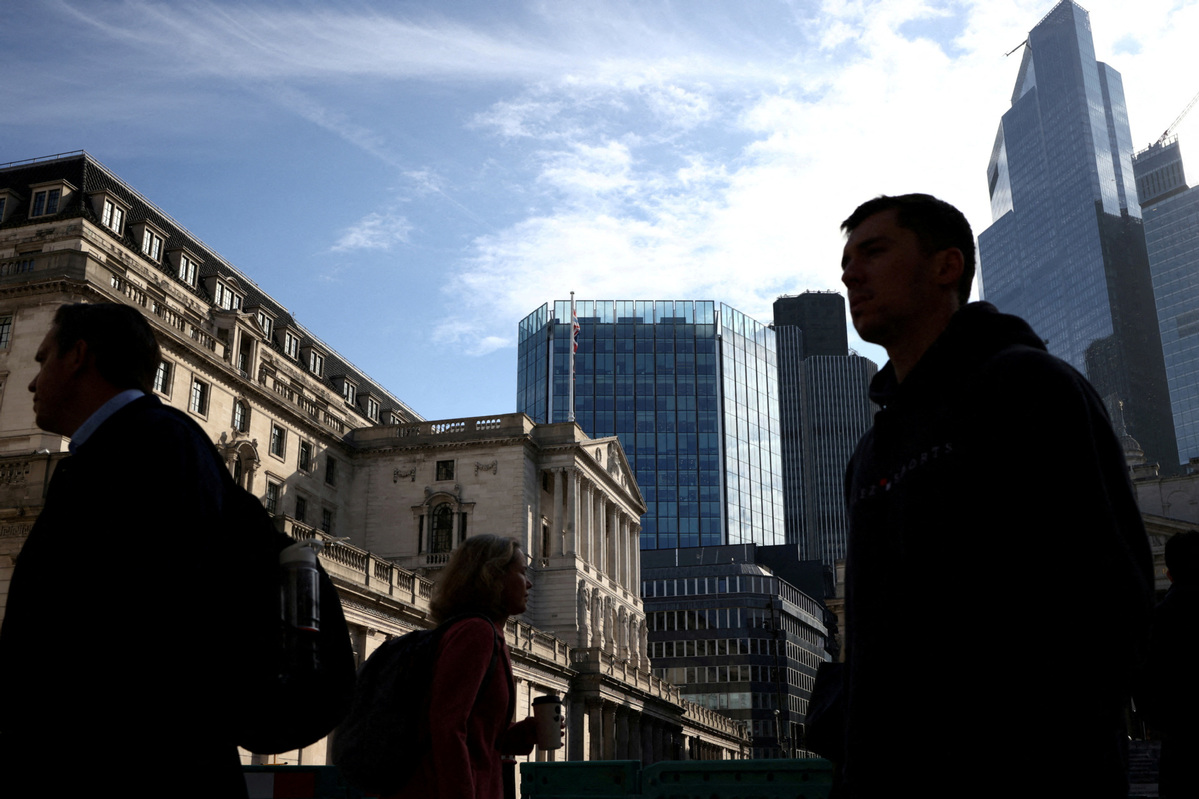UK central bank 'to leave interest rate unchanged'
By EARLE GALE in London | China Daily Global | Updated: 2023-10-31 10:04

Experts are predicting the United Kingdom's central bank — the Bank of England — will leave its benchmark interest rate at 5.25 percent when it holds its monthly review on Thursday.
The bank hiked the rate, which influences the amount people pay for loans, mortgages, and other types of borrowing, 14 consecutive times between December 2021 and September before leaving it unchanged at its October review.
Experts say it will likely be left at 5.25 percent — the highest it has been since before the financial crisis began — because inflation remains stubbornly high.
The Reuters news agency said four-fifths of the economists it polled about the bank's likely next move said they expect the rate to be left as it is, amid cooling economic activity in the UK and continued evidence of rapid rises in consumer prices and wages.
The European Central Bank and the Bank of Canada both left their benchmark interest rates unchanged when they held similar reviews recently, and the United States Federal Reserve is expected to do likewise when it discusses its interest rates on Wednesday.
The central banks all hope to mop up excessive borrowing through relatively high rates but avoid cooling their economies to the extent they slip into recession.
Andrew Goodwin, chief UK economist at consultancy Oxford Economics, told the Financial Times newspaper he could see no reason why the Bank of England would change its rate, predicting: "Rates are going to be on hold for a long time."
He said the main reason the bank will be cautious is that the most recent snapshot of year-on-year consumer price inflation came in at 6.7 percent, which was better than expected. But Consumer Price Index inflation was running at 6.3 percent for the 12 months ending August and is widely expected to remain stubbornly high throughout much of next year. The Bank of England has set itself the target of returning the rate to its 2 percent target.
Additionally, wage growth in the UK stood at 7.8 percent in the June-to-August period. And unemployment remained high, at 4.2 percent, in the three months ending August, which was up from 4 percent in the March-to-May quarter.
Ashley Webb, UK economist at forecaster Capital Economics, told the BBC: "The bank will probably continue to believe that interest rates are gradually doing their job and, in our view, it is unlikely to raise interest rates again."
Sarah Coles, head of personal finance at investment company Hargreaves Lansdown, told the BBC the UK economy looks set for a prolonged "difficult" period.
"This isn't the agony of a collapsing jobs market," she said. "It's the chronic malaise of an economy growing gradually weaker. With employment falling slightly, unemployment rising, economic inactivity up, and vacancies dropping again, optimism is ebbing slowly away."
























